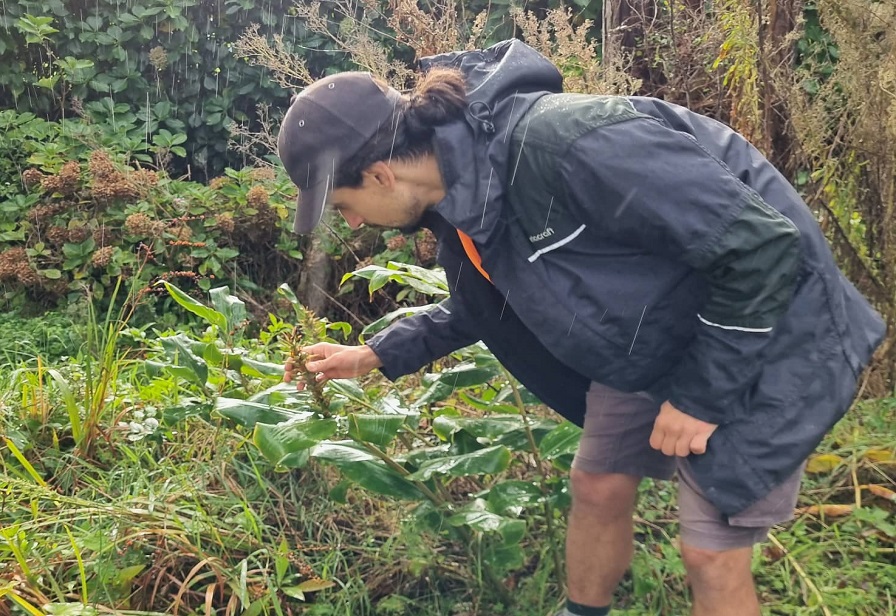Pest plants are not just a rural problem – they are also a blight on our urban neighborhoods.

In Taranaki kahili and yellow ginger have found their way onto many urban properties – often unknown to the residents. Old Man’s Beard and giant gunnera are also common, particularly near waterways.
These are all sustained control plants in the Regional Pest Management Plan, which means the land occupier has a legal obligation to remove them from their property.
This month our biosecurity team carried out an annual urban pest plant inspection, with a focus this time on Glen Avon, Waiwhakaiho, Bell Block and Waitara. It’s a big job so we do a different area each year.
For three days we walked the streets, observing from the roadside. We spotted plenty of ginger, as well as a few sightings of madeira vine and moth plant (both of which the Council will control ourselves).
It was great to chat to residents who were home about pest plants, the damage they do to our native ecosystems and provide advice on how to control them. Most people were happy to play their part.
Where no one was home, we left control information and our details. We’ll head back in a month to check the plants have been removed. The Council can issue a Notice of Direction requiring removal, if necessary. However, that’s a last resort, we much prefer to educate and empower everyone to do their bit for biosecurity in our region.
Ginger can be tricky to dispose of and cannot be taken to landfill. So we’ve teamed up with New Plymouth District Council for a one-off ‘Ginger Dump’. On June 17 and 18, bring your ginger (including roots) to The Junction on Colson Rd, New Plymouth. We will have skip bins ready for you to dump it free of charge, between 10am and 3pm.
For more on pest plants check out www.trc.govt.nz/biosecurity-biodiversity/(external link) or call us on 0800 736 222.